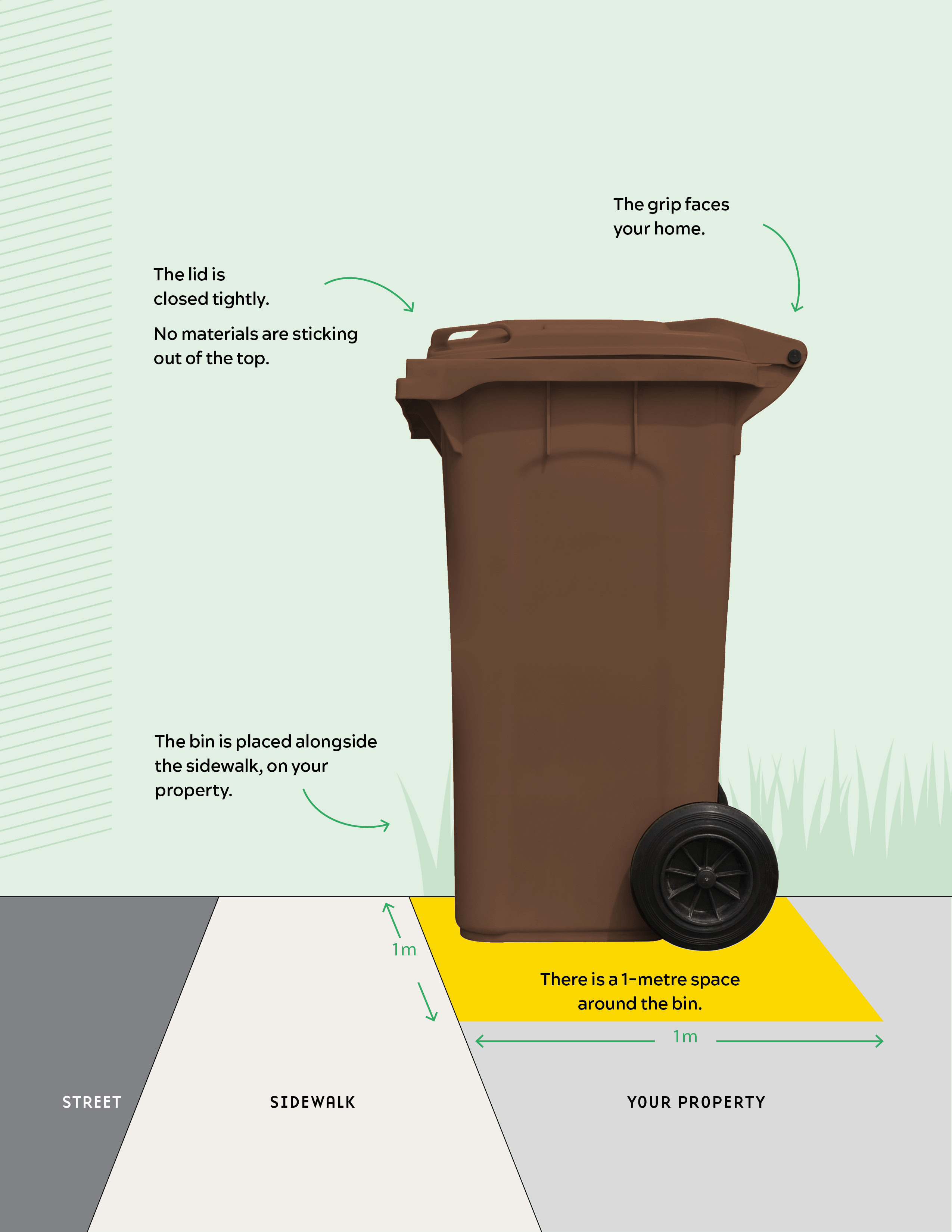Organic waste
During the summer, organics are collected weekly. In winter, collection is every two weeks.
For buildings with 9 or more dwellings and for industries, commerces, and institutions (ICI), collection takes place every week, year-round.
Collection days vary by sector. Please refer to your calendar.
Collection
The bins must be placed at the curb between 7 p.m. the day before and 5:30 a.m. the morning of collection. They must be removed the day after collection.
Collectors can pick up waste materials between 6 a.m. and 7 p.m. If they still have not come after this time, please leave your bin at the curb and notify the Environment Management division at 450-672-4444 or submit a request via our online platform. Thank you for your collaboration!
To obtain a brown bin
If you regularly have too much organic waste, you can contact the Environment Management Division at 450 672-4444 or submit a request via our online platform.
Moving? Make sure to leave your recycling bin and your little kitchen bin for the next occupants. Recycling bins are the property of the municipality and belong to a specific address.
Why introduce organic waste collection?
The Ville de Saint-Lambert is proud to begin as of next spring its implementation of organic waste collection in our community. It represents a first step toward achieving the Quebec government goal of banning the burial of organic material by the year 2020.
In fact, far too much residual material still goes to landfills every year in Quebec, constituting a major source of pollution. The recovery of organic matter through biomethanation will help create a source of energy and fertilizers.
By the end of the first year of its organic waste collection service, Saint-Lambert estimates that it will have prevented around 500 tons of organic matter from going to landfills, representing 45% of the current contents of garbage cans.
The importance of proper sorting:
- Proper sorting and waste reduction at the source limits the amount of garbage sent to landfills and its harmful effects on the environment.
- Recovering and recycling give a second life to many materials.
- Approximately 45% of your household waste can go into your brown bin.
- If you sort properly, there’ll be almost nothing to put in your household garbage container.
Questions?
To help you learn more about organic waste collection and find the answers to your questions, the Ville de Saint-Lambert has prepared a series of frequently asked questions and answers (FAQs).
You can also contact Info-environnement at 450-672-4444 or environnement@saint-lambert.ca.

